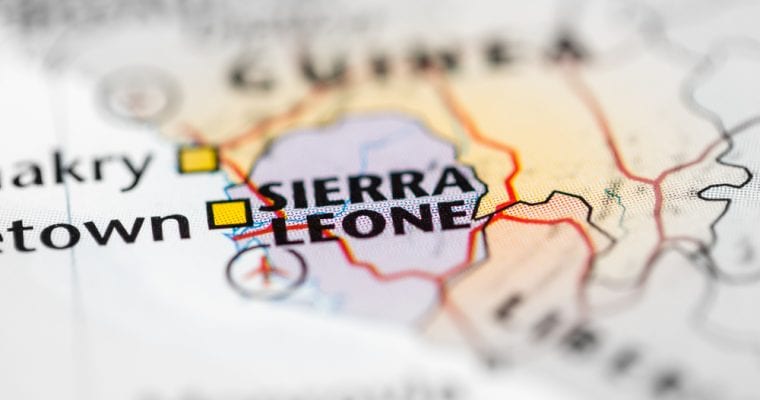Blockchain technology can now be used to provide transparency in elections as Sierra Leone becomes the first country in the world to utilise blockchain technology in verifying votes. On March 7, Sierra Leone conducted its most recent election and Swiss-based company Agora provided the country with the blockchain technology that enabled them to log and verify each paper ballot digitally after voting. The aim of this merger of politics and blockchain was to integrate blockchain’s feature of transparency in cryptocurrency transactions by storing data in a public record to elections.
Jason Lukasiewicz, the COO of Agora claimed that this is the “first time in history a Blockchain has been used in any government election, ever.”The company is looking forward to Sierra Leone’s elections paving the way for blockchain technology to shape elections around the world. Blockchain technology was applied in Sierra Leone’s presidential election by storing each vote on a permission block or private blockchain network which was accessible only by election officials tasked with overseeing the election process. This will eliminate the chances of votes validated on the blockchain network in real time from being altered.
Agora’s CEO Leonardo Gammar explained that they partnered with the European Commission, as well as Blockchain node operators from the Red Cross, the Swiss Federal Institute of Technology, the University of Fribourg, and École Polytechnique Fédérale de Lausanne (EPFL). The Swiss-based company carried out its operations in Sierra Leone’s Western District, which is the contribs most populous area and houses the nation’s capital of Freetown. This makes the country a suitable testing ground for the effectiveness of blockchain in providing fairness in an election. Sixteen candidates participated in the elections and there is a likelihood that a runoff will occur on the 27th of March. This is because the chances of any single candidate acquiring the 55% required vote would be difficult in just one election.
Although Gamma and his team experienced some hassles after the voting session ended as the opposition, Sierra Leone People’s Party (SLPP) claimed that the government authorities visited their offices and this lead to the riot police intervening to put the situation under control. However, the opposition (SLPP) Candidate, Julius Maada Bio, made an attempt to quell the uprising by saying he was following the process of the counting, “I have established a tallying centre in my office which is not against the law of this country. This is a legitimate affair.” The final results of the region were not revealed but up to 400,000 ballots were manually entered into Agora’s blockchain. The results were revealed in percentages although Agora plans to make its blockchain more auditable through public blockchain. The result revealed Samura Kamara (APC) was the winner with 54.7% of the votes, while Julius Bio (SLPP) came in second with 32.5%.
Gamma announced the success of the election by saying, “proud to announce that our results in the western district are 2 hours ahead of the National Election Commission and all NGOs, with 86% tallied.” Although Sierra Leone is the first country to utilise blockchain in verifying elections, blockchain technology has been used in the political domain. Countries like Moscow utilize the technology in allowing her citizens vote on city issues. While Brazil utilises the technology in population verification. Employing blockchain technology to the political and economic realm of Africa would help its citizen free themselves from political oppression as elections would be free and fair.
Most Popular Tech Stories
- Kelly Betting – How It Works and the Kelly Criterion Explained
- What are Pokies? – The Latest Guide to How Pokies Work in Australia
- AI industry needs annual revenues of more than the UAE’s GDP to offset costs
- Pepe Unchained Meme Token ICO Hits $2 Million – Could PEPU See a Post-Launch Surge Like PEPE?
- 4 Best Meme Coins to Buy with 100x Gains Potential – Top Picks for July 2024
Latest News
Does AI increase productivity at work? New study suggests otherwise
Artificial intelligence software reduces productivity and harms the working environment, according to a study from the freelance platform, Upwork. The findings appear to question how AI is being deployed at...


















